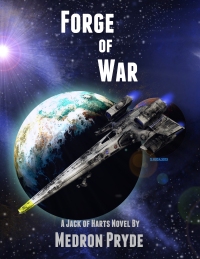Book of Civilizations – Africa
Hello, my name is Charles. Many people called Africa the Dark Continent over the millennia, a reference both the color of the people who lived there, and the mysterious its jungles kept from outsiders. Africa has opened up to us in the last four centuries, shedding the mystery and stepping into the light of the modern worlds. What that will mean for the future is an interesting mystery that I hope to watch develop.
The Book of Civilizations
Africa
Africa has a long and rich history as far back as we can trace human civilization at all. The grassy plains of Egypt and Nubia, on the banks of the Nile, were great centers of civilization after the Ice Age quite literally melted away, their pyramids a testament to the power that once flowed through their fingers. The jungles of central and southern Africa have long been home to humanity, and the local religions there are some of the oldest remaining religions we still remember as a race.
But as with all things, the power of Africa faded. The great Egyptian line of Pharaohs dating back to the beginning of civilization as we know it failed against the might Alexander the Great, and then ascendant Rome broke them again. When Christianity spread into the continent, the remaining great princes of Egypt, Nubia, Ethiopia, and other powerful nations converted to Christianity. When Islam began to spread, they quickly conquered Christian Egypt and built a new city, Cairo, to act as a new capital. As the centuries passed, they slowly drove Christianity and the other local tribal religions out of the rest of northern Africa. But in central and southern Africa, where the jungles proved difficult for the desert-acclimated Arabs, Christianity and the tribal religions survived.
By the Nineteenth Century, the Arabs held sway over nearly all of the north, and their governments codified the destruction of any other religion. Muslim raiders traveled into the jungles to enslave the pagan Africans in such numbers that they depopulated entire regions. When the European nations stepped in and occupied Africa, one of their first steps was to end the slave trade. They also established an equality of religions, and Christian missionaries returned to the paths mapped by First Century Christianity.
The Twentieth Century, especially after the Second World War, saw the Europeans stepping back from full-scale occupations of Africa, and the Islamic Brotherhoods soon began working to drive Christianity and the local African religions out of existence again. The century-long Sudanese Civil war was the longest running of these conflicts, and the bloodiest civil war in all of Earth’s history. Christianity became a unifying influence between the various African tribes of South Sudan, much like it became for the rest of central and southern Africa, a common interest the Africans could rally behind to stand against Arabic oppression. Proclaiming Christianity became not only a religious declaration, but also a political statement against the Muslim oppressors.
The Western World protested the atrocities into the Twenty-First Century, but generally did little more to stop the genocide as long as the Islamic governments kept things mostly under the covers. They did sometimes step in though. The Western militaries occupying the various oil-producing nations of the time are a testament to that policy, but even then they did not stop the wholesale bombing of Coptic Christian businesses and homes that finally drove most of them out of the Arabic World.
When the Second Great Depression hit, they pulled their armies back, and the Islamic Brotherhoods were free of even minimal interference from the West. The Arab governments throughout North Africa and the Middle East declared open warfare on anyone who wasn’t Islamic once again. Tens of millions of people died. In the Far East, they ran into the meat grinder known as India. In the Middle East, they met an Israel with no America to hold them back.
In Africa, they ran into chaos. Many consider the war in Africa to be the hardest fought of the Islamic Jihad. Historically, Egypt and the other northern countries dominated by the Arabs were some of the richest in Africa, and they had some of the best-equipped armies in Africa, which they used to sow chaos throughout sub-Saharan Africa. Many African governments collapsed under the Arab attacks, including most of West and Central Africa. These fallen nations became no man’s lands where individual tribes lived or died on their own, and outside forces were not tolerated.
Nigeria, South Africa, and Ethiopia proved the most stable of the African nations, and many of the nations around them survived only due to their support. They deployed small forces to hunt down the Arab raiders throughout Africa, without the need to take prisoners. They sent larger forces into the north, harassing the Arab states with hit and run attacks, and many of the Arab governments collapsed under the pressure. Sudan’s century-long civil war finally came to an end when concentrated South African and Ethiopian attacks destroyed the Islamic central government.
Egypt proved to be the deadliest foe of the Africa Union, and their army and air force struck back killing countless soldiers and towns across Africa. They even deployed nuclear weapons, though most of them failed to detonate due to failures in the ignition systems that most historians attribute to shoddy maintenance. Every surviving African nation sent troops to invade Egypt, and that campaign proved to be the bloodiest of the war. Most of Africa’s combined air force died in the days before the final assault, leading up to the bloodiest battle of the entire war. It started just outside the Great Pyramid near Giza, when a million-man African Union army tried to flank the Egyptian defenses. Egypt fired the last of its nuclear weapons, but none of them detonated.
The apparent miracle emboldened the African Union soldiers, and they charged the Egyptian flank. The Egyptian flank collapsed and their soldiers retreated. The Africans followed them, hoping to finish them off quickly, and the Egyptians reserves moved out of the city to stop them. Hundreds of thousands of soldiers were killed or wounded on both sides in the meat grinder that lasted all night and into the next day. Then to the amazement of everybody, the citizens of Cairo themselves stormed the presidential palace and brought an end to the most powerful Islamic Brotherhood government in Africa.
The war continued for many months, mopping up the surviving remnants of Islamic Brotherhood armies. And for years afterwards Islamic suicide bombers continued to plague Africa, but that was the day that the war for Africa was won. They began to rebuild, and to plan for the future they all could see coming. While the Arab Menace had been shattered, both in Africa and in the Middle East by Israel and India, the Russians and Chinese were flexing their muscles. The world was becoming smaller, and Africa would have to unite permanently, or they would be occupied again. So as they rebuilt, they began the slow work of uniting themselves in fact as well as treaty. It was neither simple nor easy.
In 2075, the Fifth African Constitutional Convention braved another threatened wave of suicide bombers to announce the new constitution. The next year over a billion citizens voted in favor of the new constitution and the United States of Africa was born. Africa spent the next quarter century building a truly united economy, as well as their first spaceport outside Mombasa. They achieved space in 2095, orbit in 2097, and were operating their own space station in geosynchronous orbit over Africa by 2105. It was a small station, but it was African built, a matter of pride for all of Africa. They even established colonies on the Moon and Mars.
Then China performed the first hyperspace jump and Africa realized what the new space race really was. For the first time in their memory, Africa could be the first to explore somewhere, but even after all of their efforts, they did not have the industrial base to support a true interstellar exploration program. What they did have was natural resources that could last for centuries. Those same resources had made them the target of First World mining operations in previous centuries. In the Twenty Second century, Africa leveraged those resources, and their unique position on Earth, into being in the First World.
Africa joined the Western Alliance as an equal member state, and plans to follow the Chinese into hyperspace quickly crystallized into action. And for Africa, joining the Alliance soon became one of the greatest economic boons in their history. For two centuries, mankind had envisioned a space elevator, a way to quickly move anything from surface to orbit without expensive rocket engines boosting small payloads at a time. The Second Great Depression had cut the efforts to build one off at the knees, but the Western Alliance had built an elevator in the Atlantic Ocean.
Africa offered them something they did not have at the time; an industrial base of operations to build a permanent space elevator on the equator, with the population in place to support it. Nigeria had one of the largest economies in the world, an affluent middle class, and skilled laborers who could build anything. They also had world-class ocean-going freight capacity at Port Harcourt, making it an excellent choice for the permanent base of a space elevator. In 2110, Alliance technicians lowered the cable into Port Harcourt and the first permanent space elevator opened. By 2125, Port Harcourt boasted eight strands capable of sending freight into orbit simultaneously, and plans called for more. To this day, the Port Harcourt Orbital Elevator has more capacity than any other space elevator in all the Terran Worlds.
Africa took the elevator to space and the stars beyond, and soon began to colonize their own worlds, though tried to remain out of skirmishes with the Russians and Chinese. They chose to plant colonies on warmer worlds or land masses that the others avoided, giving them some security against poachers looking for an easy colony grab. The Arabs were the only other group who chose to build colonies where the temperatures approached 60 degrees Celsius on a regular basis, and they picked drier climates than the rainforests the Africans preferred.
Three African colony worlds had achieved First Worlds status when the Peloran made Contact. The technologies the Peloran brought proved as much a boon for the Africans as they did for the rest of the Western Alliance. The diseases that had stymied Western medicine for centuries ceased to be an issue, and Peloran genetic treatments extended African lifespans into the centuries. Interestingly, the Africans who stopped aging at all were far more rare than those who come from Europe. The fact that every African Ageless had markers that suggested a European ancestor was the single greatest clue we have yet discovered about that phenomenon.
Today, the African worlds continue to stay out of the way of major conflicts when possible. They do have fleets and armies powerful enough to defend their worlds against any normal foe, but have not yet committed their fleets and armies in defense of the Western Alliance, claiming mobilization issues. The Shang have not yet assaulted them, but if there is one thing we have learned, it is that no single place, no matter how well defended, is safe against a determined Shang assault. The question is whether or not the Shang will force the Africans into The War as they did the Americans and Europeans. The answer to that question will greatly determine the fate of the Western Alliance as a whole.
 The Martian Affair on Amazon
The Martian Affair on Amazon Forge of War on Amazon
Forge of War on Amazon The Audacious Affair on Amazon
The Audacious Affair on Amazon Angel Flight on Amazon
Angel Flight on Amazon Angel Strike on Amazon
Angel Strike on Amazon Angel War on Amazon
Angel War on Amazon The Family Affair on Amazon
The Family Affair on Amazon The Thunderbird Affair on Amazon
The Thunderbird Affair on Amazon Wolfenheim Rising on Amazon
Wolfenheim Rising on Amazon Wolfenheim Emergent on Amazon
Wolfenheim Emergent on Amazon The Gemini Affair on Amazon
The Gemini Affair on Amazon
Discussion ¬